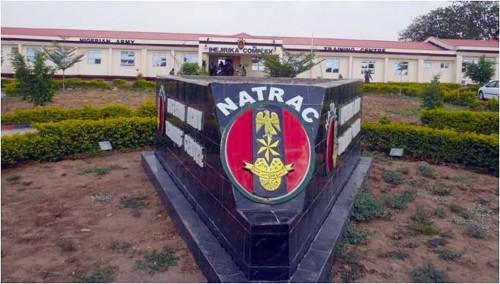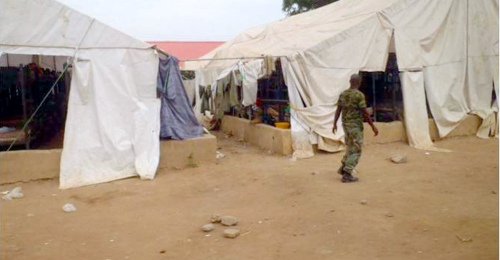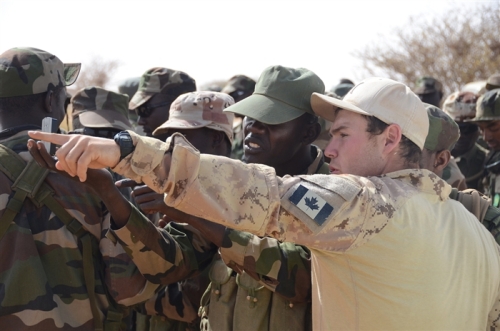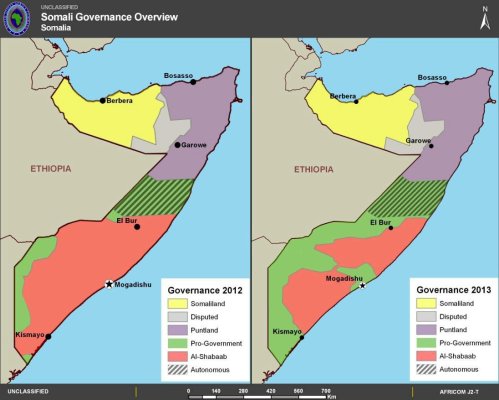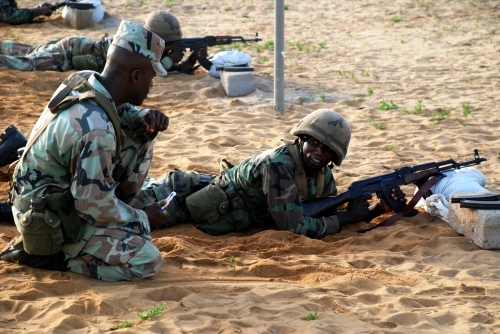The US has stepped up its support to the government of Nigeria this week. The driving factor has been the abduction of hundreds of schoolgirls by the nebulous Islamist insurgent group Boko Haram, which has been waging a brutal campaign against the central government since 2009. This week President Obama dispatched an inter-agency team to Nigeria to help in efforts to locate and rescue the abductees. The sixty individuals in the team were reportedly from the US military, agencies of the Intelligence Community, and the Federal Bureau of Investigation (FBI).

US and Nigerian military personnel at the Kontagora Grandstand and Impact/Maneuver Area at the Nigerian Army Training Center
On Friday, US Army Africa (USARAF) announced that the military members of the team would be working with personnel already at the US embassy in Abuja to train a battalion of Nigerian Army Rangers. USARAF said this would be the first time it would train Nigerian troops for “decisive action” against “a real threat.” The US has a long history of working with the Nigerian military, but this has generally been related to peacekeeping operations. You can read more about this in my recent piece on the announcement on War is Boring.
The twelve Army personnel, said to be a combination of Army Special Forces and Army National Guard general purpose forces, would run a recently formed 650-man Nigerian Army Ranger Battalion through a training course modeled on the US Army Ranger Course. No details were given as to which units the trainers would come from, but 3rd and 10th Special Forces Groups have an established history of conducting security assistance and foreign internal defense efforts in Africa. The California Army National Guard is also aligned with Nigeria through the National Guard Bureau’s State Partnership Program. Military personnel are apparently already in Nigeria conducting military-to-military engagements to figure out what the existing capabilities of the Nigerian troops actually are.
The actual training is scheduled to begin in two weeks at the Nigerian Army Training Center (NATRAC). The Nigerian government is reportedly footing the entire $400,000 bill for the event and that amount was decided on by them in the first place. The Nigerian Army had first requested the advanced infantry training assistance after touring the US Army Ranger School at Fort Benning, Georgia last fall. USARAF then worked with them to figure out how much training could be done for that amount. There is also no indication that any of those funds will be used to rehabilitate any part of NATRAC. USARAF released a set of undated and less than flattering pictures of NATRAC facilities to go along with their announcement, some of which are reproduced below:
This training event is also just one part of expanding US assistance to the Nigerian military to combat Boko Haram. In January, the Nigerian government established the Nigerian Army Special Operations Command with American assistance. The US is also reportedly in talks with the Nigerian government about providing intelligence aircraft support. This could potentially involve manned and unmanned aircraft.
The US government only declared Boko Haram a terrorist group last November. It also applied that designation the splinter faction Ansaru at that time. There has been some controversy recently over why it took years of escalating violence for the Department of State to make this decision. Whatever the case was, the US appears to be paying attention now.
